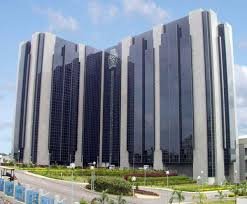By Abubakar Yunusa, Abuja
The current move by the Central Bank of Nigeria, CBN, to redesign some Naira notes with a view to addressing currency counterfeiting in the country, cannot solve Nigeria’s poor monetary policy. This is the view of Civil Society and Legislative Advocacy Centre,(CISLAC).
In a statement, the Centre’s Executive Director, Auwal Musa-Rafsanjani noted that the redesign was not an economic priority and could not solve the country’s poor monetary policy challenges and growing economic woes.
According to him, the decision is coming at a time when the country is grappling with huge fiscal deficits, a free fall of the Naira, soaring inflation rate, multiple forex rates and rising borrowing costs.
He said: “So far, the macro-economic and monetary policies of the CBN has brought untold hardship to the productive and service sectors of our nation’s economy with consequential negative effects on the lives of our citizens.
“The apex bank has floated multiple exchange rate regimes and has been accused of facilitating arbitrage between the parallel and official foreign exchange markets, providing huge financial patronage and extending forex-based favours to allies.
“Nigeria is grappling with the external pressures from the incapacity of the Central Bank of Nigeria (CBN) to protect foreign exchange reserves from external outflows.”
The centre added that intensifying collaborations with relevant anti-corruption agencies would help the CBN to check dubious charges by some commercial banks, “who keep shortchanging poor Nigerians whose reducing disposable income is further worsened by growing inflation costs and unemployment”.
“Reduction of competition with other agencies by going beyond its purview to drive interventions in sectors without the consent or cooperation of the relevant coordinating ministries.
“The CBN’s continued and unsolicited support for MSMEs can be more effective by ensuring synergy between the fiscal and the monetary authorities on intervention funds and adopting transparent mechanisms for beneficiaries to access,” the statement noted.
According to him, there is a need for the availability of forex to those who legitimately need it like students studying out of the country and businesses.
“The artificially low exchange rate has failed to be as reflective of the market as possible and this has affected access to forex for payment of foreign tuition fees, and the importation of systems and raw materials which contribute greatly to the country’s worsening economic situation.
“There is a huge blow to our foreign direct investment as foreign investors are leaving due to their inability to access forex.
“Sanitization of the CBN recruitment processes, which are non-transparent as they seem to be reserved exclusively for the children, wards and affiliates of politically exposed persons.
“In this desperate period of economic woes for Nigeria, the CBN’s efforts will be better served in pushing robust monetary policies that are in tandem with global best practices, fighting inflation and building a strong financial system in an increasingly uncertain global economy,” Mr Rafsanjani said.






















